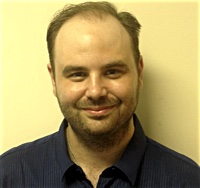Process-based Therapy
$10.00
Presenter: Dr. Stefan G. Hofmann
Overview:
Process-based therapy (PBT) is a radical departure from the latent disease model of the DSM and ICD with its absurd proliferation of the protocols-for-syndrome approach. Instead, PBT focuses on how to best target and change core biopsychosocial processes in a specific situation for given goals with a given client. This approach recognizes that psychotherapy typically involves non-linear (rather than linear), bidirectional (rather than unidirectional), and dynamic changes of many (rather than only a few) interconnected variables. Effective therapy changes the entire system toward a stable and adaptive state by enhancing context-specific variability, selection and retention of biopsychosocial processes. PBT is, therefore, grounded in evolutionary science. For therapy to be most effective, we, therefore, need to embrace a systematic, assessment-guided, and theory-based approach to understand the relationships of the various problems of a given client. Functional analysis, the foundation of behavior therapy, provides the basis to understand these relationships. PBT acknowledges the complexity, inter-relatedness, and multidimensional levels of the problems in a given client. This workshop will illustrate how PBT is used to target key treatment processes by combining functional analysis with a dynamic and person-specific network approach.
Learning Objectives: Intermediate Audience
(1) Gain an up-to-date understanding of the core processes of CBT.
(2) Develop an idiographic, functional diagnostic system based on evolutionary science.
(3) Use functional analysis in conjunction with complex network approach in a given client
Bio:
Stefan G. Hofmann, Ph.D., is the Alexander von Humboldt Professor for Translational Clinical Psychology and the Department of Clinical Psychology, Philipps University Marburg, Germany, and Professor of Clinical Professor of Psychology at the Department of Psychological and Brain Sciences at Boston University. He has been president of numerous professional organizations and is currently editor-in-chief of Cognitive Therapy and Research. He has been included in the list of Highly Cited Researcher and received many other awards, including the Aaron T. Beck Award for Significant and Enduring Contributions to the Field of Cognitive Therapy and the Humboldt Research Award. He was an advisor to the DSM-5 Development Process and was a member of the DSM-5 Anxiety Disorder Sub-Work Group and member of the Cross-Cutting Culture Review Group of the DSM-5-TR. Dr. Hofmann has published more than 400 peer-reviewed journal articles and 20 books on anxiety disorders, depression. emotions, the mechanism of treatment change, translating discoveries from neuroscience into clinical applications, emotion regulation, and cultural expressions of psychopathology. His most recent work is developing and testing process-based therapy, together with Steven C. Hayes.
Description
Presenter: Dr. Stefan G. Hofmann
Overview:
Process-based therapy (PBT) is a radical departure from the latent disease model of the DSM and ICD with its absurd proliferation of the protocols-for-syndrome approach. Instead, PBT focuses on how to best target and change core biopsychosocial processes in a specific situation for given goals with a given client. This approach recognizes that psychotherapy typically involves non-linear (rather than linear), bidirectional (rather than unidirectional), and dynamic changes of many (rather than only a few) interconnected variables. Effective therapy changes the entire system toward a stable and adaptive state by enhancing context-specific variability, selection and retention of biopsychosocial processes. PBT is, therefore, grounded in evolutionary science. For therapy to be most effective, we, therefore, need to embrace a systematic, assessment-guided, and theory-based approach to understand the relationships of the various problems of a given client. Functional analysis, the foundation of behavior therapy, provides the basis to understand these relationships. PBT acknowledges the complexity, inter-relatedness, and multidimensional levels of the problems in a given client. This workshop will illustrate how PBT is used to target key treatment processes by combining functional analysis with a dynamic and person-specific network approach.
Learning Objectives: Intermediate Audience
(1) Gain an up-to-date understanding of the core processes of CBT.
(2) Develop an idiographic, functional diagnostic system based on evolutionary science.
(3) Use functional analysis in conjunction with complex network approach in a given client
Bio:
Stefan G. Hofmann, Ph.D., is the Alexander von Humboldt Professor for Translational Clinical Psychology and the Department of Clinical Psychology, Philipps University Marburg, Germany, and Professor of Clinical Professor of Psychology at the Department of Psychological and Brain Sciences at Boston University. He has been president of numerous professional organizations and is currently editor-in-chief of Cognitive Therapy and Research. He has been included in the list of Highly Cited Researcher and received many other awards, including the Aaron T. Beck Award for Significant and Enduring Contributions to the Field of Cognitive Therapy and the Humboldt Research Award. He was an advisor to the DSM-5 Development Process and was a member of the DSM-5 Anxiety Disorder Sub-Work Group and member of the Cross-Cutting Culture Review Group of the DSM-5-TR. Dr. Hofmann has published more than 400 peer-reviewed journal articles and 20 books on anxiety disorders, depression. emotions, the mechanism of treatment change, translating discoveries from neuroscience into clinical applications, emotion regulation, and cultural expressions of psychopathology. His most recent work is developing and testing process-based therapy, together with Steven C. Hayes.






Reviews
There are no reviews yet.